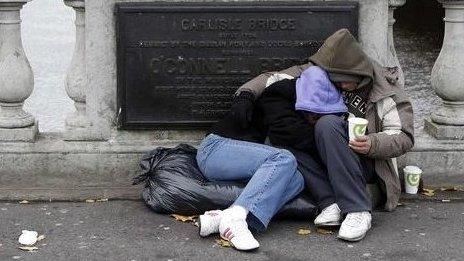Fr Peter McVerry: The NI priest who fights for Dublin's homeless
- Published
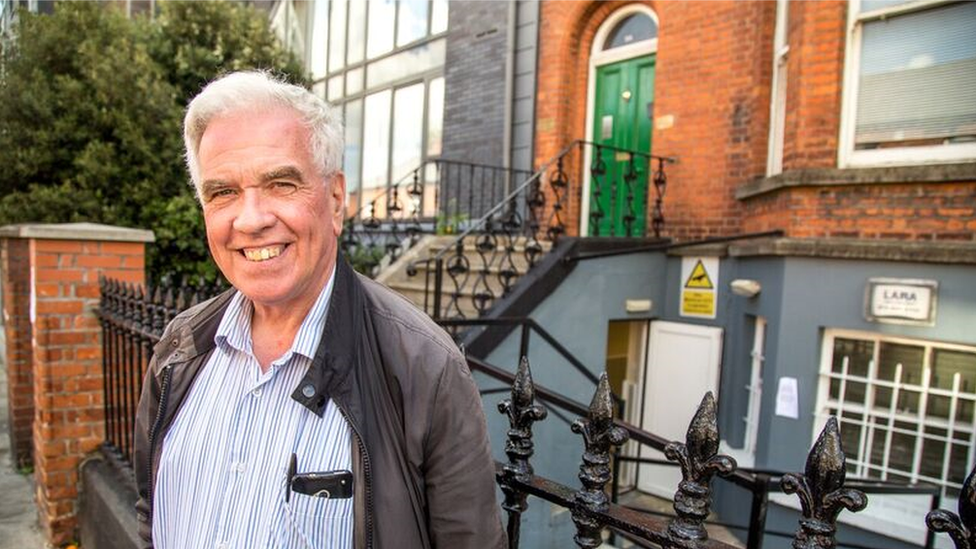
Fr Peter McVerry ran a drop-in centre for the homeless in Dublin's Sherrard Street for decades
For more than 40 years, Northern Ireland-born priest Fr Peter McVerry has dedicated his life to helping some of the Republic of Ireland's poorest people - Dublin's homeless.
He has given shelter to thousands of destitute Dubliners and provided hundreds of them with the keys to "permanent" homes.
But his own start in life was very different to most of those who seek his help.
So, how did a privately-educated doctor's son become one of the Republic of Ireland's most prominent social justice campaigners?
'Upper middle class'
Born in Belfast in 1944, he grew up in Newry, County Down, where his father was a GP and his mother, a former nurse, was a housewife.
"It was a very comfortable childhood, we wanted for nothing. My father, being a doctor, was well off," Fr McVerry recalls.
"Being a doctor in a small town like Newry had a high social status, so I would describe ourselves as being upper middle class."
He attended Newry's Abbey Primary School but at 12 he was sent to Clongowes Wood College in County Kildare, a private boarding school run by Jesuit priests.
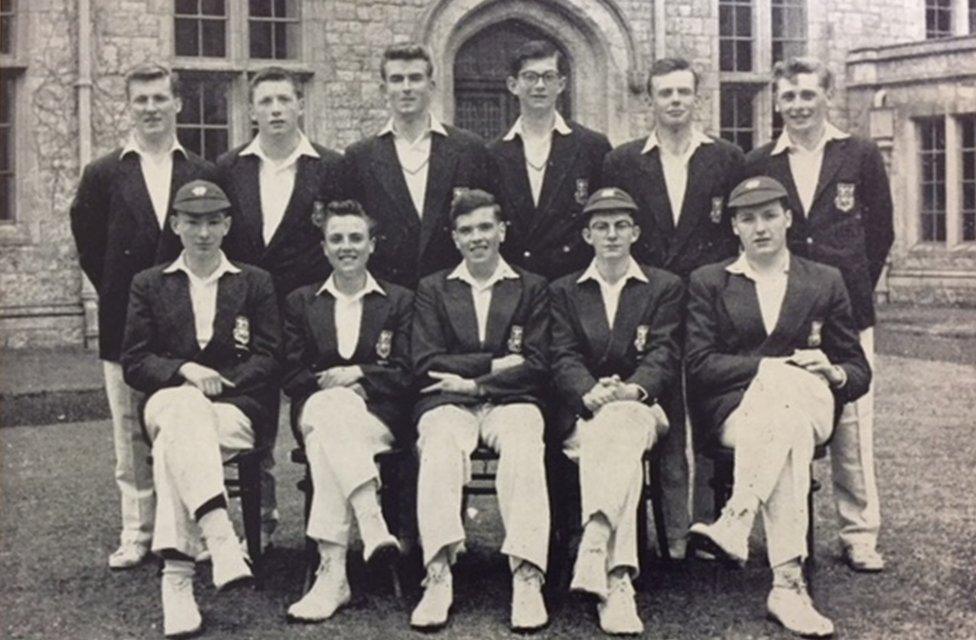
Peter McVerry (seated centre) was a prefect and cricket team captain at the prestigious school
Both his brothers also attended Clongowes and became doctors, but Fr McVerry credits their parents for influencing his vocation.
"I remember the phone ringing frequently at two o'clock in the morning and my father would get up and go out to see one of his patients," he says.
"That could happen every night of the week nearly, so I think I got a sense of service from him."
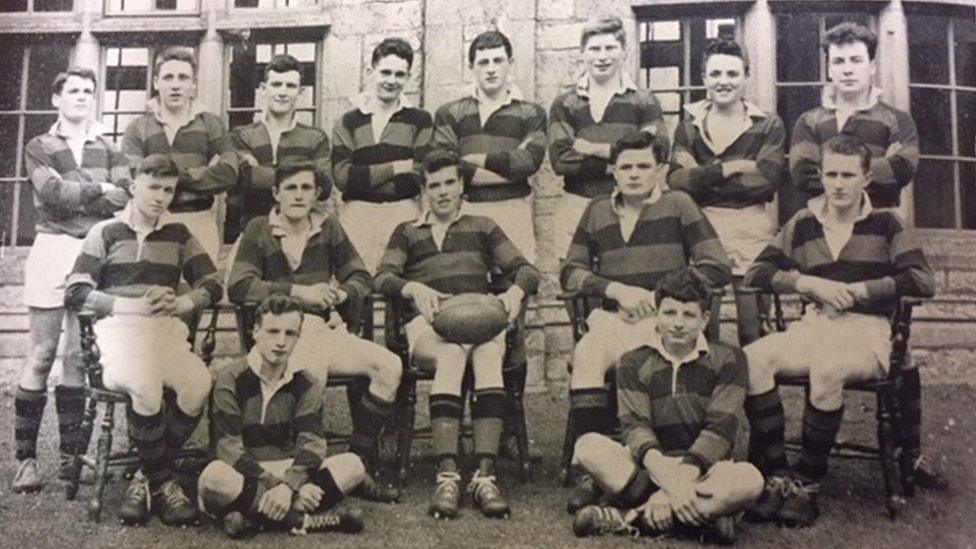
A keen sportsman, Peter McVerry (seated centre) also captained one of the school's rugby teams
His mother was a Welsh Protestant who converted to Catholicism in order to marry.
"Like many converts, she became more Catholic than the Catholics themselves, so I think I got my faith from my mother," he says.
"When I was thinking of what I would do with my life, the two of those coalesced and becoming a priest seemed to be a way of serving others in a religious context."
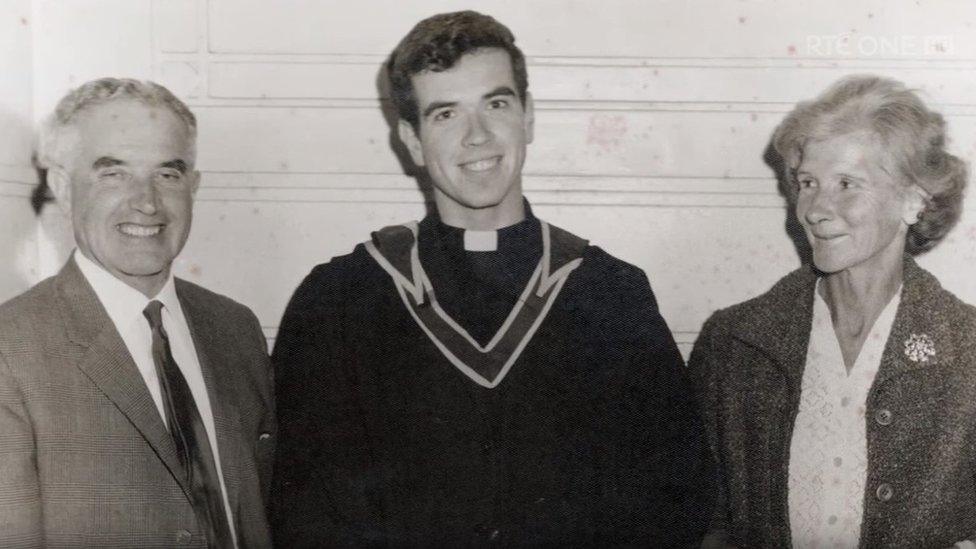
A young Fr McVerry with his parents at his graduation in 1968
After ordination, he taught at Belvedere College in central Dublin but admits he was oblivious to the hardship just outside its walls.
'Shocked'
By the mid-1970s he was helping out at a nearby youth club which, for the first time, brought him into contact with some of Dublin's most impoverished families.
"That shocked me, the conditions that people lived in, but what also shocked me was the fact I had been living in Dublin for the previous 10 or 12 years and I had no idea that people lived in those conditions."
The plight of a nine-year-old boy sleeping on the streets inspired him to set up his first hostel for homeless youths in 1979.
Years of tireless fundraising led to more shelters, but Fr McVerry wanted to go further and provide a permanent place to call home.
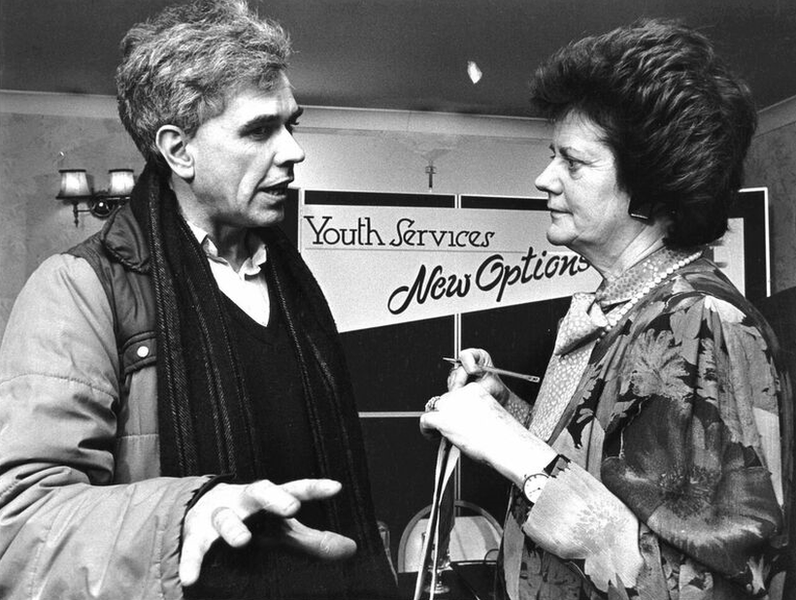
Fr McVerry discussing youth services with leading Irish politician Mary O'Rourke
In 1983, he set up a charity called the Arrupe Society, later renamed the Peter McVerry Trust.
The trust is now a significant provider of social housing, temporary accommodation and addiction services, supporting almost 5,000 people last year alone.
"We have 300 apartments now where we can give a homeless person the key of the door and say 'this is yours for the rest of your life, you never, ever have to become homeless again'," Fr McVerry says proudly.
Those granted lifelong tenancies include that nine-year-old boy who inspired the charity, and whom its founder still sees almost every day.
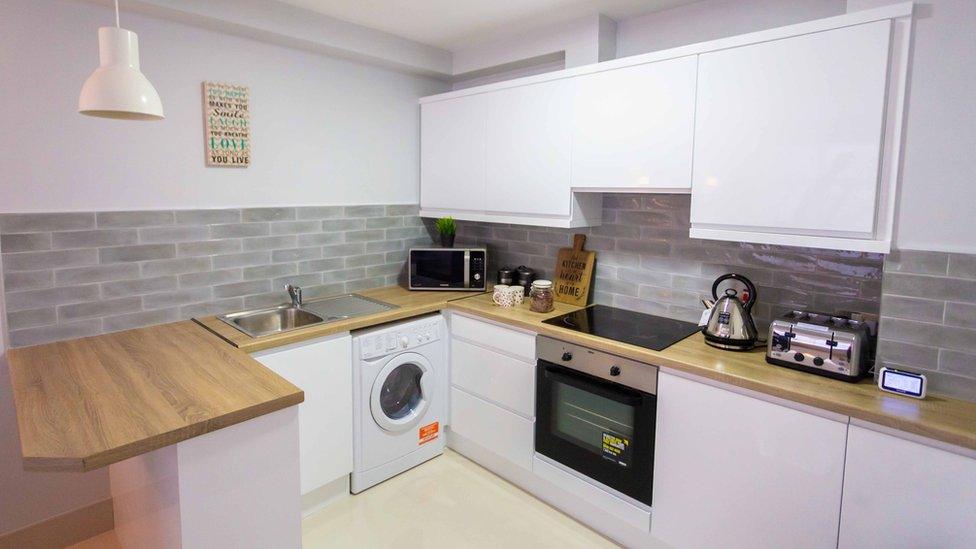
A kitchen in one of the 13 new social housing units that were opened by the trust in early December
At the last official count,, external there were almost 10,000 homeless in the Republic of Ireland, the "worst crisis" Fr McVerry has seen.
But he claims the real figure is closer to 15,000 when sofa surfers and other hidden categories are taken into account.
'Scandal'
The homeless population has "totally changed" from the 1970s when it was mostly single men, teenage boys and drug addicts, he says.
Now, the main problem is young families priced out of the private rented sector.
"We have about 1,700 homeless families with almost 4,000 children between them - this is an absolute tragedy and a scandal," says Fr McVerry
He blames a failure to build enough social housing.
"In 1975, this county built 8,500 council houses. In 1985 - and we had a recession in the 80s so we weren't flush with money - this country still built 6,900 social houses," he says.
"In 2015, this country built 75 social houses, so there's been a huge reduction."
He criticises the number of derelict and boarded-up homes, saying owners should "use them or lose them" to compulsory purchase orders.
Fr McVerry has won several prestigious awards for his work - he was named Irish Person of the Year in 2005 and granted the Freedom of Dublin in 2014.
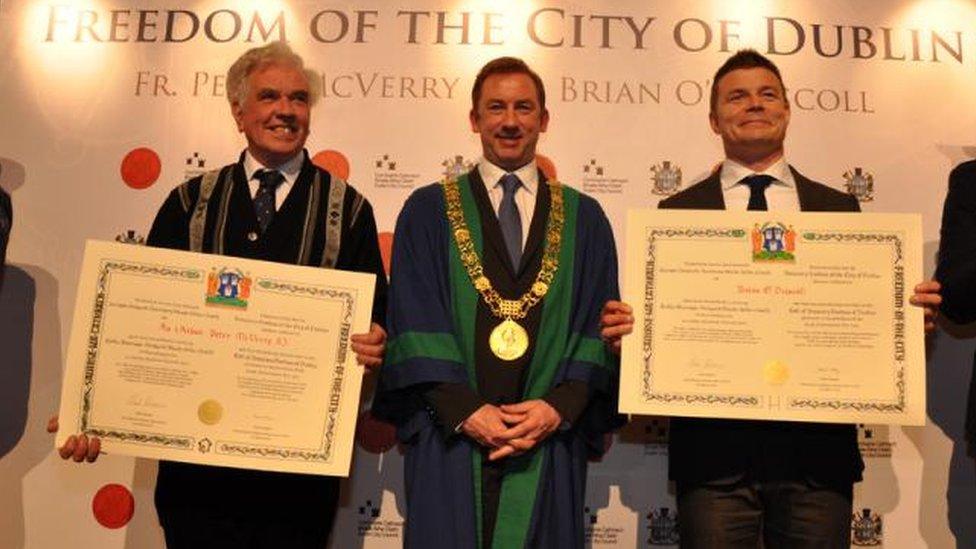
Fr McVerry was granted the Freedom of Dublin in 2014, along with rugby star Brian O'Driscoll
Now approaching his 75th birthday, he has "half-retired" and handed financial responsibilities to the charity's staff, to "make sure that if I died in the morning, the operation would continue".
But he still works in its drop-in centre every day, assisting with housing and money problems.
'Stoned'
He lives alone in the Dublin suburb of Ballymun, where like his father, he frequently gets out of bed in middle of the night to answer calls for help.
"People may be calling to the door at three o'clock in the morning, sometimes stoned, looking for a cigarette but's that's part of the life," he says.
He intends to spend the rest of his days in his adopted city, but has not forgotten his northern roots.
"I'm living in Dublin for the last 50 years but I've never felt like a Dubliner, I still feel I'm a Newry person."
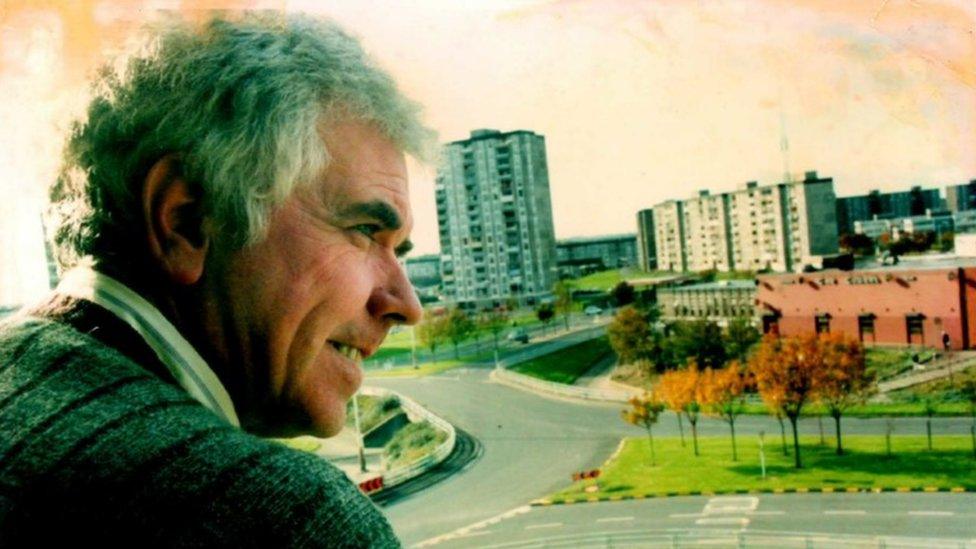
Fr McVerry has made the Dublin suburb of Ballymun his home
Fr McVerry will spend Christmas Day hosting a dinner for the homeless, before joining fellow priests for an evening meal.
He has never regretted becoming priest and although he wanted a family of his own, he believes he could not do his job in the same way if he had children.
"You make that sacrifice for another good and I've just been so happy working with homeless people. I've benefitted so much, I've learned so much from them.
"I often say I've got so much more from homeless people than I've been able to give to them."
- Published19 June 2014
